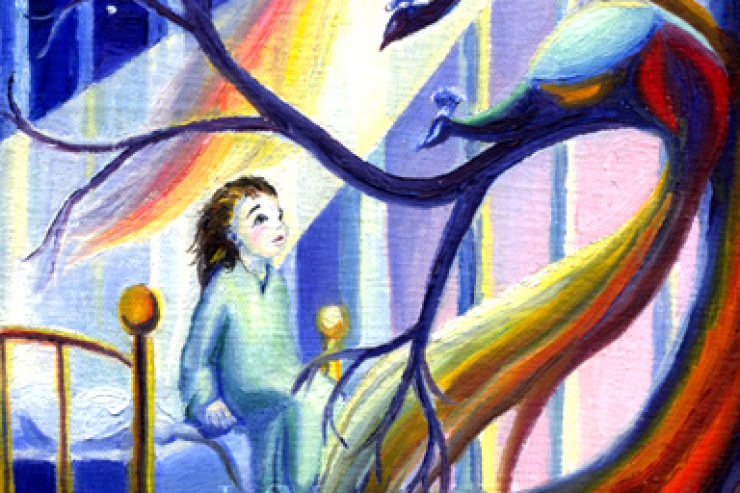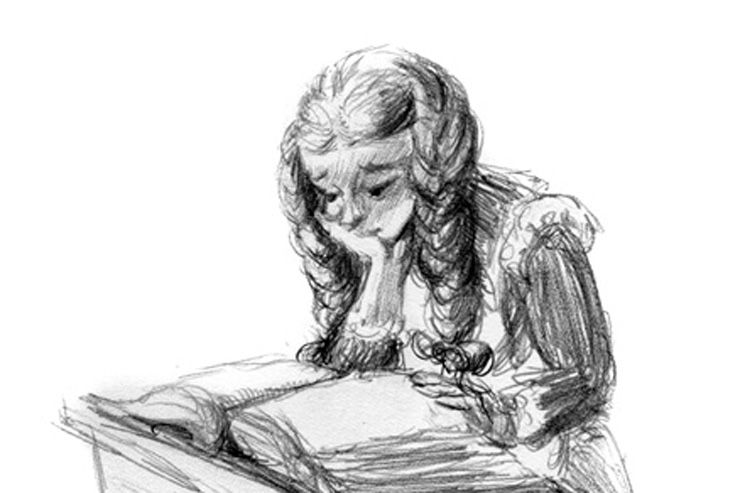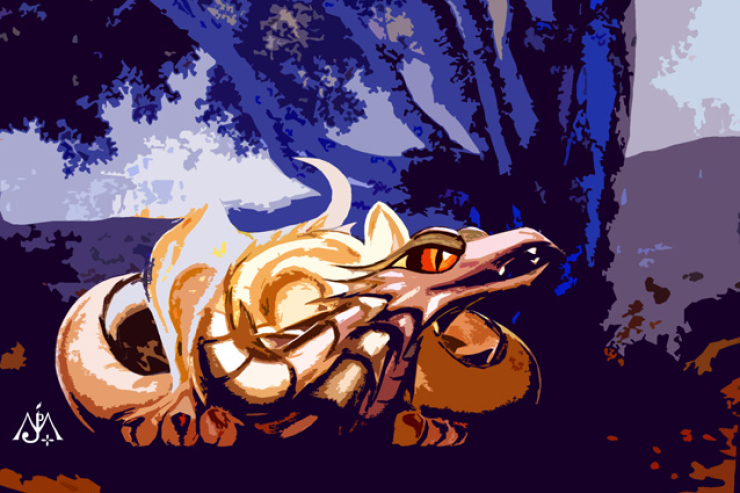
Michelangelo's The Creation of Adam
“Goodnight…”
“Goodnight.”
“Don’t go to sleep….”
“I won’t.”
This is the way my brother and I ended each day. Steve was my junior by three years, and the long shadows of evening always filled him with thoughts of phantoms floating through foyers and bogeys under the bed. Somewhere along the line he determined, or perhaps had been advised, that if his big brother stayed awake just long enough for him to fall asleep, the designs of the proverbial “creatures that go ‘bump’ in the night” would be derailed, their campaigns corrupted by this metaphysical monkey-wrench being tossed into the works.
I never stayed awake, of course. And he was generally sound asleep faster than as I was, as far as I could tell. But it was the formula that was important…that incremental incantation that warded off wickedness and made all well.
This sort of magic is, I believe, fairly common in that mystical community known as the family. G.K. Chesterton declared it thus: “When we step into the family, by the act of being born, we do step into a world which is incalculable, into a world which has its own strange laws, into a world which could do without us, into a world we have not made. In other words, when we step into the family we step into a fairy-tale.”
Most families of my acquaintance in childhood had, within the four walls of their multitudinous dominions, ongoing histories and traditions that would have rivaled any writings of Hans Christian Anderson or the Brothers Grimm. I knew of households with single children who themselves lived out almost Shirley “Temple-esque” tales of heroism, independence, and poignancy. Others harbored herds of heathens, each vying for their fair share of fun and attention. Plot lines were written and made manifest in the interactions of family members, neighbors, and pets at outings, in plays and music, in planning holidays and vacations; even during crises like sickness and natural disasters. And every day a new chapter in the ongoing saga would begin….
Although not all of us had what we would call idyllic childhoods, or even happy ones for that matter, most of us remember the years of growing up as a time of intense creativity, a time of excitement, a time of wonder. It is only when we leave home and strike out on our own that we seem to lose that sense that all will “come out right” that exists within the halls of home. It’s only as young adults that fear sinks its deep roots into our innards and strips away the joy and trust that seems so natural in childhood.
Why is this? What changes when we step outside of our adolescent Arcadia and confront “the real world”?
For most of us, home meant safety and security. It did not mean that nothing would ever go awry; after all, we all have old road scars from falling off our bikes or memories of being struck down with chicken pox. But, what we had in childhood was a sense that we were part of something bigger…something that could be relied upon. We trusted that someone else – an older sibling, Uncle Chuck, or mom and dad – would be there for us if we needed them.
But stepping out into the “real world” often meant assuming that we were now, literally, “on our own”. And putting aside the mendacity of the assumption that belief itself festers into a “heart of darkness” within us that taints all that we do. With no one to look out for us and guide us, we make bad choices and the world, in its turn, “bites back”. We get ourselves into trouble, or we have friends and co-workers who do so, and what we once thought of as a world full of infinite possibilities becomes one of treachery and danger…one that we have to “fix”.
We come to distrust everything: public policies, possessions, people, and prayer. We angrily demand that the world assuage our fears, that our governments purge poverty and insure that no one ever goes hungry or is ever harmed by violence. We insist that everyone be treated equally and that no slight or even perception of slight be suffered. We expect everyone to own the same things, to think equally agreeable thoughts, to be kind and courteous to each other; and we bring the weight of the law and the military and the police down to make sure that all of this comes to pass.
And then…we find that the society we’ve created is a nightmare. We find ourselves living in a police state where everyone owns the same things because there is no other choice, where everyone spies on and sues everyone else, and where exceptional talents and skills are squashed so that no one feels inferior.
But this isn’t at all what we wanted!
Before our fears got the best of us – before we left the enchanted realm of childhood – we were cherished for who we were, not for what we produced or how politically correct were our opinions. When we trusted that “all would be well”, we knew that our transgressions could and would be forgiven; but we also knew that our contributions to other family members, to friends, and to the community, were treasured and celebrated.
In other words, with trust came freedom. With trust came happiness.
G.K. Chesterton said “Art consists of limitation. The most beautiful part of every picture is the frame.” And the limitations we have in the family, as with the limitations laid upon us by Scripture, are what allow us the freedom to truly be whom we are meant to be. The only way that we, as adults, can ever find our way back to the enchantment of Elysium that so often accompanies youth, is to reclaim our limits – not for everyone else in society, thereby creating a hell on earth – but for ourselves.
Oddly enough, when we put limits on ourselves and expect the best of ourselves, when we begin to follow in the footsteps of the saints, we regain that most precious of commodities, trust: as well as its even more precious partner, peace. We realize that the world can be fearsome – life is an adventure, after all! – but, as in childhood, we once again perceive that there is always Someone else more powerful than us who is in control, and to Whom we can always turn when we are frightened by phantoms at night.
And that may be an encouraging thought….
Please help us in our mission to assist readers to integrate their Catholic faith, family and work. Share this article with your family and friends via email and social media. We value your comments and encourage you to leave your thoughts below. Thank you! – The Editors













